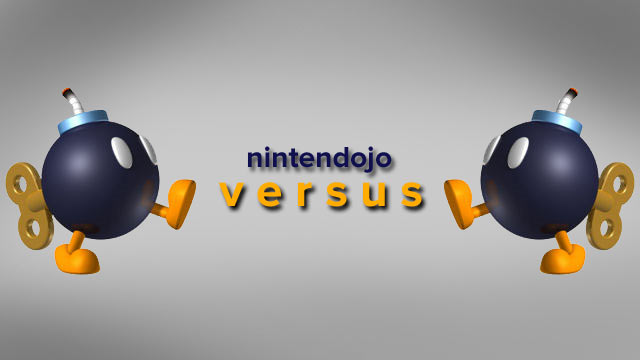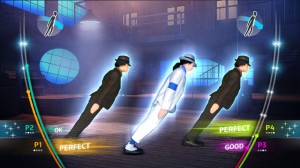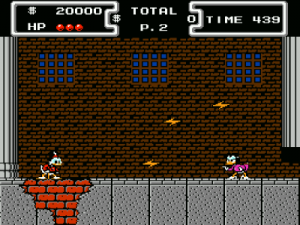
When we started talking as a staff to make an issue about licensed games, almost of all of us were instantly on the critical side, as if conditioned to do so. That’s why debating the good and bad about licensed games became a compelling challenge, and one that Carter and Andrew commit to here. Will your opinions be reinforced or shattered? Read on.
Licensed Games: End It, Already
|
— |
Licensed Games: Necessary Evil
|
| No one ever learned anything from E.T., did they?
Promotion of a game is done in one of two ways: how great and unique the game is, or the license/series it’s based on. Rarely is there anything inbetween. In an ideal world, every game would contain fresh new ideas, but we don’t live in an ideal world. Some are only interested in making money, and what’s the easiest way to make money in game development? Buying a license to an already existing intellectual property, of course! Making a licensed game doesn’t require much effort from the developer, because the games are almost guaranteed to have decent sales and financial success depending on the property the game is based on. You make a Sesame Street game for Wii; expect children to want that game regardless of its quality or critical reception. This creates a slippery slope for game developers actually striving to make a licensed game, since the general reaction from “hardcore” gamers will usually be something like “This is going to suck.” And, you know, without discounting my argument, I will agree that it is unfair to judge any game you have not played yet.
But really, do licensed games usually ever exist for any other purpose than to make money? Sure, I guess at some point, all games are made for money, but when are licensed games ever not cash-ins on successful or up-and-coming franchises and intellectual properties? Don’t get me wrong, there are some decent licensed games on Wii. However, for every studio that just wants to recreate GoldenEye and relive the heydays of sleepovers with your bros, there are jackholes who just wants to annualize dying franchises or make a quick game about that one movie. Yeah, remember that movie? Yeah, it was alright. Licensed games also usually do nothing to stray away from original games they’re inspired by, if they’re not already complete rip-offs of prior, successful and original titles. Today, we see mostly shooters a la Call of Duty and Wii Play/Sports-style party games as companions to our favorite TV shows, movies, and books. Before that, we saw (Mario) kart racers, and even earlier than that, platformers with gameplay identical to that of Super Mario Bros. In five years, something new will come along for everyone to jump on and completely stagnate. In fact, it’s already being done to the tower defense genre. Games based on popular intellectual properties don’t work for the same reason that movies about popular video games do not work: if they’re not exclusively made for money, then there’s more effort in piggybacking on (or just blatantly stealing) popular ideas, techniques and trends than there is staying true to the source material and creating something unique in the process. Let’s get some more GoldenEyes, Duck Tales, Turtles in Times, Riddicks, and Arkham Asylums. If you don’t have that, then don’t bother making anything at all. |
The Shantae, Mega Man and Castlevania series may not seem to have a whole lot in common, except for the fact that all three have been generally well-received (and that all three are video game series), but in fact they share one universal theme: their developers, WayForward, Capcom and Konami, all got their start making a whole lot of licensed video games.
For WayForward, it was Sabrina: The Animated Series: Zapped! (and its partner, Spooked!), as well as Wendy: Every Witch Way, Godzilla: Domination and The Scorpion King: Sword of Osiris. Capcom found its path by making games such as the NES Darkwing Duck and The Magical Quest: Mickey and Minnie, as well as a whole host of Disney movie games that boys and girls and grown-ups alike actually enjoyed quite a lot. Finally, Konami developed a couple of arcade games about the Teenage Mutant Ninja Turtles, as well as the Aliens franchise. You might have heard of them, because they’re– you guessed it– pretty darn great games as well. But now, we associate WayForward with teenage witches and Capcom with Mickey Mouse about as much as we associate Christmas with leprechauns. At some point, these game companies got big– and people started playing their games even more. Admittedly, it’s pretty easy to say that companies with talent like Konami are going to make it big eventually, but even Nintendo had to get its start somewhere. (Remember those Hanafuda cards Nintendo used to make? They got crazy big when Nintendo started licensing Mickey’s image to put on them.) The fact is, sure, licensed games may not be the best ones out there– the infamous E.T. game for Atari stands out, though the one that I remember most is the GBC Austin Powers game that was modeled after a PC game and yet took longer than one to boot up– but they’re nevertheless important for helping even the smallest video game company rig up its idea-crankin’ gears. As we all know, WayForward’s now kicking out quality by the boatload with Shantae: Risky’s Revenge and A Boy and His Blob, while still making decent licensed games like Batman: The Brave and the Bold. Capcom’s even more successful with its Street Fighter and Mega Man series (and still licensing to some extent– Marvel vs. Capcom says hi). Though I can’t say I’m much of a prophet, I’d gamble that without making these licensed games, companies like WayForward wouldn’t have nearly enough capital to create any of their own intellectual property, much less games that further their own artistic visions. I understand the argument that video games based on movies and television shows are often more akin to clunky boulders than diamonds in the rough, but we’ve got to give them a break. Companies need to make money somehow, and if they do, that means a whole lot more fun for the rest of us as well. |
Be sure to let your voice be heard below in the comments. Tell us whom you agree with and why, or spit in both of the staffers’ faces with your own opinion.




 ShareThis
ShareThis









Since I could not read your stance until now; well played, Hsieh! I look forward to our next Versus!, if it ever occurs again.
You’re a worthy adversary (: Incidentally, haha, I wonder what a Sesame Street game for Wii might look like.
… okay I just Googled “Sesame Street Wii” and got this: http://www.amazon.com/Sesame-Street-Zoo-Adventure-Nintendo-Wii/dp/B003QP725W
I promise I did not know anything about that hahahaha